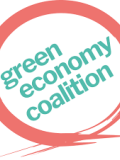




Sikkim, India’s first organic state, lies in the north-east region of the country. Almost half the state is under forest cover, supporting many rare and indigenous species of flora and fauna, so it's no surprise that UNESCO recently recognised Sikkim‘s Khangchendzonga National Park as a world heritage site with tremendous natural and cultural importance.
With such an abundance of cultural beauty and biodiversity, tourism has mushroomed as a prime economic sector. According to the India Brand Equity Foundation, Sikkim’s economy is driven by the secondary and tertiary sectors. The tertiary sector alone is at about 48 percent, and includes trade, hotels, real estate, transportation, and communication as the main drivers, all of which are related to the tourism industry11. Tourist influx, and consequently, revenues from the sector have also gradually increased with better physical connectivity, and effective branding and promotion strategies.


The Green Economy Coalition's Global Meeting for 2017 saw the drafting and launch of the Santa Cruz Declaration on Local Green Enterprises - a call to action from manufacturers, producers, business owners, entrepreneurs, innovators, and local communities in recognition of the vital importance of smaller businesses to addressing global challenges. Read the full text below:



